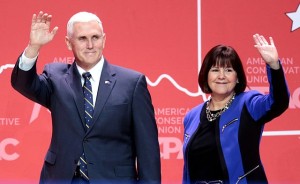I think we’ve established that those who control new media, our primary means of collective communication and social interaction, share neither our beliefs nor goals. The decision by Internet behemoths to enforce draconian abrogations of speech at the behest of the European Union merely crystallizes what we’ve known for some time, i.e. Mark Zuckerberg and his colleagues are not our allies, or even politically disinterested capitalists seeking to maximize their profit margins. They are ideological enemies, although posing as neutral parties, who want to see our ideas, insofar as they militate against egalitarianism, social democracy, open borders, multiculturalism, progressivism, feminism, dawa, and social justice, quarantined. If not eliminated altogether.
We have an inkling of what the future of this cloistered Web will look like, and it’s not something I look forward to. It’s a place where a drawing of Mohammed potentially garnering thousands of dollars can be removed, albeit temporarily, from eBay, along with CSA flags-at the behest of journalists-yet paeans to the greatest mass murderer of the 20th century remain widely available. A place where peaceful critics of the mass importation of rapists and criminals from the third world have their Facebook accounts suspended, even as calls for the killing of the presumptive Republican presidential nominee remain in place.
The Internet has broken the stranglehold exercised by old media over the flow of information. It’s allowed free citizens to access and disseminate facts, even as traditional gatekeepers try to embargo information which intellectually destroys their narratives and reveals unpleasant truths. It’s leveled the playing field between us and them, which is why they repeatedly and openly attempt to seize control of this invaluable tool for global communication. While the Overton window shifts in our favor, we need to recognize and respond to this unprecedented challenge. This threat is so palpable that it’s even seeped into our popular culture, forming the basis of a plot-line to an episode of the popular Netflix series House of Cards. Naturally, reality was inverted, as it was a Republican candidate collaborating with an enormously influential website in order to acquire and retain limitless executive power.
This prompts the question, how should we respond? How do we fight NGOs, bureaucratic institutions, multinational corporations and Internet monopolies that have seemingly endless resources at their disposal, and which control the medium through which we hope to communicate? There are many proposals, but one of the more intriguing ones involves holding these new media giants to their word. A pro-life musician sued Youtube after her incredibly popular video was removed without explanation. On a much broader scale, Professor Stephen Bainbridge has suggested that wealthy philanthropists bankroll a lawsuit against Twitter in order to put conservative proposals on its annual proxy statement. Although this tactic sounds rather innovative, it actually bears a striking resemblance to a suggestion made by Senator Jesse Helms during the mid-80s which entailed a hostile takeover of the habitually biased CBS by conservative shareholders of the network.
Another legal proposal floated by some right wing analysts concerned about this growing problem is to force the government to classify these social media giants as public utilities, thus affording access for dissenting, anti-leftist thought. There are a number of reasons why I think this path-like the shareholder revolt-would be an ultimately futile effort. Although I welcome the entrance of affluent right wingers into the cultural war-and have been heartened by the courageous actions of Peter Thiel, the right’s real-life version of Batman-I don’t believe that conservatives will be able to engineer a coup, in the best sense of the word, against Twitter. Similarly, I doubt the efficacy of any effort to compel these corporations to enforce access and equitable treatment through the judiciary.
This isn’t because I believe it would allow the left to squelch some of the few remaining outlets of public conservatism outside of the Internet-although I’m certain liberals will continue to cheerlead for the introduction of any measure that mutes non-leftist opinion. I’m of the opinion that the utility of talk radio and the Fox News Channel to the right has waned and will continue to decline in the years ahead-this election being merely foretaste of things to come. No, I oppose this route because it relies upon a thoroughly misguided view of how our courts currently operate. Beyond the merits of this controversial idea, the notion that jurists steeped in progressivism will rescue conservatives is absurd on its face. It’s the same misguided thinking which led many to believe that the Roberts Supreme Court would unilaterally abolish Obamacare, i.e. that an instrument of the state would begin to curtail the excesses of another branch of the state.
Another option is to create right wing analogs to existing Web-based resources. The dreary results of this experiment can be seen in QubeTV and Conservapedia, the latter a Christian fundamentalist response to Wikipedia’s perceived biases. Beyond the self-consciously limiting aspect of these projects, their creators are marginalizing a political philosophy which they hope to spread to the widest possible audience-in effect, doing the very job of the websites they stand in opposition to. Creating a less professional, derivative, albeit conservative, version of a pre-existing Web platform is not the solution to the problems we’re facing. We’re not going to win the battle of ideas by diving into an ideological cul-de-sac. In my next essay, I’ll explore some strategies which might actually work.








Recent Comments